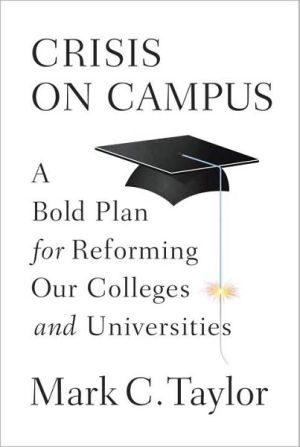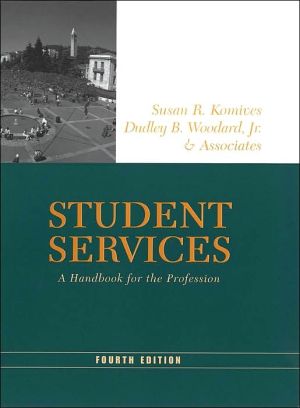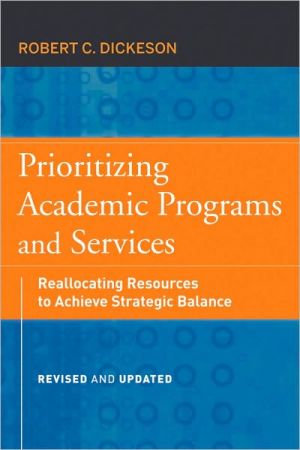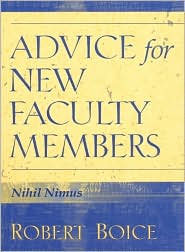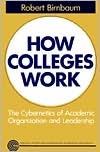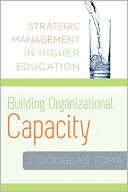Reframing Campus Conflict: Student Conduct Practice Through a Social Justice Lens
How many hate or bias incidents occurred on your campus this past year? Did any students opt out of filing formal charges? How many completed a formal resolution process, and what happened? Would you have liked to have other conflict resolution options?\ “This publication is endorsed by ASCA as a collaborative, collegial new lens through which to consider how social justice practices and student conduct administration can come together to inform best practices in conduct and conflict...
Search in google:
How many hate or bias incidents occurred on your campus this past year? Did any students opt out of filing formal charges? How many completed a formal resolution process, and what happened? Would you have liked to have other conflict resolution options?“This publication is endorsed by ASCA as a collaborative, collegial new lens through which to consider how social justice practices and student conduct administration can come together to inform best practices in conduct and conflict management on college and university campuses."- Tamara J. King, J.D., 2009 President, Association for Student Conduct AdministrationSocial justice theory provides the lens for expanding our conception of student conduct administration, and the foundation for considering systemic changes in practice – changes that are vital to address the concerns and issues raised by an increasingly diverse student population. Using this lens, this book casts new light on existing principles and current practices; makes issues of power, privilege and oppression manifest; and offers a vision for expanding resolution practices to empower today’s students to resolve their own conflicts. Complementing the Model Student Disciplinary Code, this book opens up a whole new range of approaches and models that readers can adapt to their institutional circumstances.Starting from the principle that systems and models are vehicles through which to act on our values, and by focusing on such core values as the commitment to student development, freedom of expression, diversity, accessibility, individual rights and shared responsibilities in a community of learners, the contributors reveal the utility and contemporary relevance of a number of underutilized resolution practices. Part I provides a framework for transforming student conduct administration using conflict resolution methods and social and restorative justice practices. Part II devotes a chapter to explaining each of the seven “Spectrum Model Pathways” to conflict resolution that form the core of this book: Dialogue, Conflict Coaching, Facilitated Dialogue, Mediation, Restorative Justice Practices, Shuttle Diplomacy, and traditional formal student conduct processes informed by social justice theory. Part III provides practical application tools for the ideas presented in this text, including discussion of change management and assessment, and concludes with an overview of programs from across the country using inclusive conflict resolution methods in student conduct work. This is a book for anyone concerned about issues of access and justice for all students – regardless of race, sexual orientation, belief, or ability – and seeking to develop and implement restorative and safe practices for their campus community.
Acknowledgments xiEndorsement Tamara L. King xiiiFordword Edward N. Stoner xvIntroduction Jennifer Meyer Schrage Nancy Geist Giacomini 1Part 1 Responding To Conflict On Campus: Foundations For Student Affairs Educators1 Building Community In The Current Campus Climate Nancy Geist Giacomini Jennifer Meyer Schrage 72 When Student Learning And Law Merge To Create Educational Student Conflict Resolution And Effective Conduct Management Programs Simone Himbeault Taylor Donica Thomas Varner 223 Why Objectivity Is Not Enough: The Critical Role of Social Justice in Campus Conduct and Conflict Work Ryan C. Holmes Keith Edwards Michael M. DeBowes 504 Providing A Spectrum Of Resolution Options Jennifer Meyer Schrage Monita C. Thompson 65Part 2 Pathways Within The Spectrum Model5 Moving Toward A Healthier Climate For Conflict Resolution Through Dialogue Tosheka Robinson 876 The Art Of Conflict Coaching: Transferring Interpersonal and Group Conflict Resolution Skills to a One-on-One Setting Nancy Geist Giacomini 1007 Facilitated Dialoguie: An Overview and Introduction for Student Conduct Professionals Jay Wilgus Ryan C. Holmes 1128 Models Of Mediation Practice William Warters 1269 Restorative Justice From Theory To Practice Andrea Goldblum 14010 Reading The Scripts: Balancing Authority and Social Support in the Restorative Justice Conference and the Student Conduct Hearing Board David R. Karp 15511 Using Shuttle Diplomacy To Resolve Campus Conflict Jennifer Meyer Schrage Michele Goldfarb 17512 Incorporating Principles Of Conflict Resolution And Social Justice Into Formal Student Conduct Code Pathways Nancy Geist Giacomini181Part 3 Sustainable Innovation13 Using Needs Assessment And Deliberative Planning To Enhance Conflict Systems Development Richard T. Olshak 19714 Sustaining A Worthy Investment: Assessing Conflict Resolution Programs Richard T. Olshak 20815 Teaching Social Justice On Campus For Self-Awareness, Community Sustainability, And Systems Change Judy Rashid 21916 An Implementation Model: Campus Conduct and Conflict Management at the University of Michigan: U-M Division of Student Affairs Office of Student Conflict Resolution and Housing Student Conflict Resolution Staff 22717 Sharing Stories: Program Innovations of Our Colleagues Nancy Geist Giacomini 241About The Editors 259About The Contributors 261Index 267
\ From the Publisher“This publication is endorsed by ASCA as a collaborative, collegial new lens through which to consider how social justice practices and student conduct administration can come together to inform best practices in conduct and conflict management on college and university campuses. \ This approach serves to enhance the student’s ability to fully comprehend the seriousness of the conduct, appreciate the people, community, or institutions affected by their conduct, restore the people, communities, and institutions affected, and hopefully eliminate a repeat of inappropriate behavior. When a student comprehends the impact of their behavior on others; this truly allows the student to participate in not only an educational but transformative process. The student walks away from the experience with a greater appreciation for the community to which they belong and a deeper respect for others.”\ “The essays in this book start to fill an opening left by the Model Student Code. It is written by student affairs professionals with, collectively, centuries of student affairs experience [who] have worked in large and small institutions, public and private, all across the country and have experimented (and used successfully) a wide range of approaches.\ This book contains not only suggestions, but also models. You probably will not find one that fits your campus ‘exactly’. But what you will find is the treasure of careful thought that has been given to many different approaches. If you are lucky, you will find a nugget here and a kernel there that, together, will be just the New Approach that fits your campus history and expectations perfectly.”\ \ \

